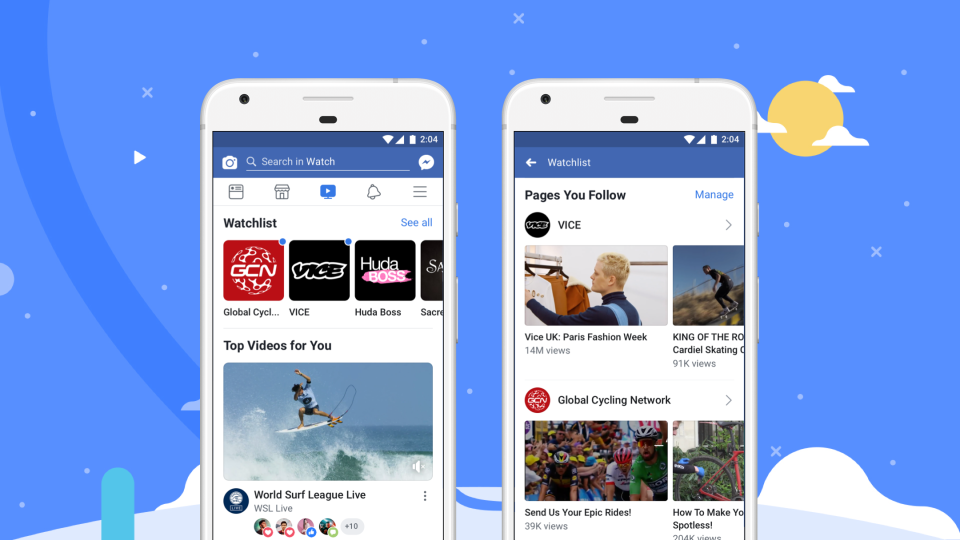Watch out, Google: Facebook rolls out its Youtube rival in the UK

Facebook's answer to Youtube is going live in the UK, after a successful year in the US broadcasting original content, entertainment and sports shows.
From today, users around the world can watch videos via Facebook's Watch feature. Additionally, eligible creators in the UK, Ireland, Australia and New Zealand will join the US in making money from their videos using the Ad Breaks service.
Facebook's head of video, Fidji Simo, said more than 50m people in the US have watched videos for at least one minute on Watch, with total time spent watching content increasing by 14 times since the start of 2018.
That's some way behind Youtube's 1bn hours of viewed content each day, but Simo said Watch creators in the US have made "meaningful revenues" through Ad Breaks through shows from Youtube stars such as Huda Kattan and livestreams of Major League Baseball games.
Read more: Netflix hires top Facebook communications executive
For new creators in the UK, ad revenues will be split 45 per cent for Facebook and 55 per cent for the creator.
To qualify for the service, the creator must have made three-minute videos that have generated more than 30,000 one-minute views in total over the last two months, with more than 10,000 followers on their page.
Facebook said it continues to work on other versions of revenue generation for creators, such as branded content and the ability for fans to pay for subscriptions to their favourite channels in a similar style to Twitch.
Simo said the subscription service is currently in trials with a few creators at the moment, but "we are planning on expanding that programme soon".
Read more: Media giant suffers revenue blow amid Google and Facebook changes
Kirsty Brice, a director for Europe at marketing tech firm 4C Insights, said the push to take Watch global had been "on the cards for some time" after Facebook signed a deal to acquire the rights for streaming the Premier League online earlier this summer.
She added the move is a sign of confidence in so-called multi-screen viewing, as consumers now switch from platform to platform with relative ease.